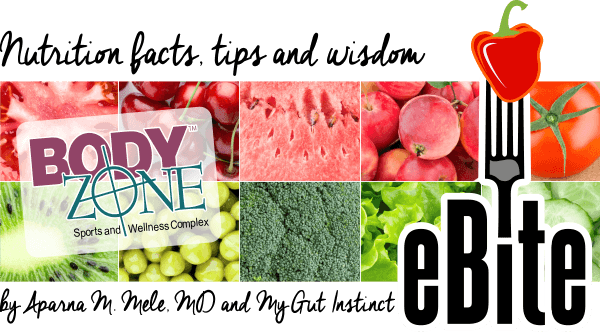 Alzheimer’s Disease is the most common form of dementia and the sixth leading cause of death in the United States. In this progressive, irreversible disorder, nerve cells in the brain slowly degenerate, causing problems with memory, thinking, and behavior. Despite extensive research, both cause and cure for Alzheimer’s disease remain elusive. Two factors that appear to play a role in the development of this condition are oxidative damage by free radicals and inflammation. While these things can develop as part of the natural aging process, they are also strongly impacted by lifestyle and potentially diet. Experts theorize that a complicated combination of genetic, environmental, and lifestyle factors result in cognitive decline. So what can you do now to start preventing mental decline? Focus on foods and habits that can potentially boost your brain health.
Alzheimer’s Disease is the most common form of dementia and the sixth leading cause of death in the United States. In this progressive, irreversible disorder, nerve cells in the brain slowly degenerate, causing problems with memory, thinking, and behavior. Despite extensive research, both cause and cure for Alzheimer’s disease remain elusive. Two factors that appear to play a role in the development of this condition are oxidative damage by free radicals and inflammation. While these things can develop as part of the natural aging process, they are also strongly impacted by lifestyle and potentially diet. Experts theorize that a complicated combination of genetic, environmental, and lifestyle factors result in cognitive decline. So what can you do now to start preventing mental decline? Focus on foods and habits that can potentially boost your brain health.
Recently researchers from Rush University Medical Center developed a diet that helped lower the risk of Alzheimer’s by as much as 53% in study participants who followed it rigorously, and by as much as 35% in moderate followers. The MIND diet (Mediterranean–DASH Intervention for Neuro-degenerative Delay) is a combination of both the Mediterranean and DASH diets (Dietary Approaches to Stop Hypertension) and includes foods from each that contain nutrients that appear to play crucial roles in maintaining brain health.
• Eating fish like tuna and salmon once a week has been shown to slow decline in those with the Alzheimer’s gene, due to the high content of omega-3 DHA fatty acid, which reduces oxidative stress and slows plaque buildup. Low levels of omega-3 fatty acids in the diet have been associated with increased risk of depression and cognitive decline. Suggested intake is at least 1 (4-to 6-ounce) serving per week
• Berries, especially blueberries, are packed with antioxidants, which help protect sensitive brain cells from harmful free radicals. Suggested intake is at least 2 cups per week.
• All nuts, but especially walnuts, offer potential brain benefits thanks to the powerful combo of omega-3s, vitamin E, and antioxidants. Have 1 ounce of nuts at least 5 days a week
• Beans are natural brain boosters, containing B vitamins and phytochemicals, as well as a strong supply of glucose. Glucose is a top source of fuel for the brain, since it cannot store glucose, so it relies on a steady supply of it from the body. Include beans with four or more meals a week.
• Eating dark leafy greens may be one of the best ways to maintain proper brain function, because they are packed with folate and phytochemicals, both of which have been linked to a lower risk of mental decline. Folate deficiency is associated with depression and possible cognitive impairment. A minimum of six cups weekly are recommended.
• A study published in the Journal of Alzheimer’s Disease found that olive oil improved learning and memory by reversing oxidative damage in the brain. Extra virgin olive oil contains oleocanthal, which boosts the production of key enzymes that help break down the plaques associated with Alzheimer’s. Use this healthful oil often or exclusively in your cooking.
• Antioxidant-rich green tea is particularly brain-friendly, thanks to its stash of catechins. Not only do catechins appear to be some of the most effective antioxidants in preventing free radical damage, but some research suggests they can help block amyloid plaque formation seen in Alzheimer’s.
• Coffee too! A study at Harvard found that people who drink 3 to 5 cups of coffee (caffeinated or decaf) a day may have a lower risk of developing neurological diseases and type 2 diabetes. Coffee contains chlorogenic acid, an anti-inflammatory compound that also decreases cells’ insulin resistance. Caffeine also blocks adenosine, a chemical that inhibits the activity of nerve cells and several studies correlate caffeine intake with higher scores on memory tests. Recommended intake is less than 4 cups a day.
• Dark chocolate also has beneficial properties. It is rich in flavonoids, which help create neurons and have been shown to improve cognitive function. It also encourages the release of endorphins, which elevate your mood. For maximum flavonoid benefit, choose a dark chocolate that contains 60% cacao or higher. Chocolate is obviously fattening and should be limited to 1oz servings eaten only occasionally.
• The exact impact that our gut bacteria have on the brain is unclear, but adding bacteria diversity with diet is one of the best ways to encourage a healthy gut. Do this by eating more probiotics, prebiotics, and fermented foods, such as yogurt, kimchi, kombucha, miso, and sauerkraut. Fermented foods also contain high concentrations of vitamin K, which may be a factor in slowing the development of Alzheimer’s because of its key role in the production of important lipids. Eat probiotics and fermented foods several times a week.
Most in the Alzheimer’s research field believe that people should adopt and continue healthy lifestyles, including diets low in saturated fats and high in antioxidants and B vitamins. Until more research is available, it makes sense to combine a good diet with physical and mental activity and social interaction. This approach just might help keep Alzheimer’s disease, as well as other illnesses, at bay.
Yours in health,
Dr. Mele
Kale, Ground Turkey, and Cauliflower Soup
Source bebrainfit.com/brain-food-recipes
Ingredients
• 1 lb. ground turkey;
• 4 shallots, chopped;
• 3 carrots, sliced;
• 1 bell pepper, cut into pieces;
• 15 oz can diced tomatoes;
• 5 cups chicken stock
• 1 ½ cup cauliflower, minced;
• 4 cups kale, ribs removed, leaves coarsely chopped;
• 2 tbsp. coconut oil;
• Sea salt and freshly ground black pepper
Preparation
1. Melt the coconut oil in a saucepan placed over a medium-high heat.
2. Add the shallots, carrots, cauliflower, and bell pepper.
3. Cook until the vegetables are slightly soft (8 to 10 minutes), stirring frequently.
4. Add the turkey to the vegetables and cook until the meat is cooked through (6 to 8 minutes).
5. Add the chicken stock, diced tomatoes, and season with salt and pepper to taste.
6. Bring the soup to a boil. Stir in the kale, reduce the heat to low, and let it simmer, covered, for 15 minutes.
